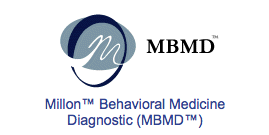 The MBMD assessment helps provide a broader understanding of the personal reality that each patient faces. By helping identify psychosocial assets and liabilities that may affect an individual’s response to treatment, the MBMD test enables clinicians to develop tailored treatment recommendations.
The MBMD assessment helps provide a broader understanding of the personal reality that each patient faces. By helping identify psychosocial assets and liabilities that may affect an individual’s response to treatment, the MBMD test enables clinicians to develop tailored treatment recommendations.
Brief yet comprehensive, the MBMD inventory helps gather a range of information that it might otherwise require a battery of instruments to obtain. Three norm groups, one that includes a comprehensive sample of patients with chronic medical conditions, one specific to bariatric surgery candidates, and one specific to patients with chronic pain, this contemporary test can help increase the likelihood of positive treatment outcomes and may thereby reduce the overall costs of care.
How to Use This Test
Psychologists, physicians, nurses and other professionals use the MBMD results to help:
- Identify patients who may have significant psychiatric problems and recommend specific interventions
- Pinpoint personal and social assets that may facilitate adjustment to physical limitations or lifestyle changes
- Determine whether patients need more communication and support in order to comply with prescribed medical regimens
- Structure post-treatment plans and self-care responsibilities in the context of the patient’s social network
Key Features
- NEW! The MBMD’s recently added chronic pain norms and Pain Patient Reports can assist with pre-treatment psychosocial evaluations to help professionals select suitable therapies, general and expanded behavioral health evaluations to help determine the most appropriate intervention,and monitoring of treatment interventions and outcomes.
- The MBMD’s bariatric norms can help determine a candidate’s psychological suitability for surgery, assist patients in making significant lifestyle changes, and prepare medical staff to respond to patients’ likely reactions following surgery.
- The MBMD’s general medical normative sample permits the test’s use to be extended into a variety of settings including sleep disorder centers, cancer treatment centers, cardiac rehabilitation programs, neurological rehabilitation units, military and veterans’ hospitals, primary care facilities and family medicine clinics.
- The Interpretive Reports include Healthcare Provider summaries written in language medical professionals can readily understand, helping to facilitate communication between the psychologist and medical staff.
- The test’s 165 items require only 20–25 minutes to complete, helping to reduce patient resistance and fatigue.
- By enabling more effective treatment planning, the MBMD test may help decrease healthcare costs in clinics and hospitals through reduced assessment time, more efficient triage and decreased complications after major procedures.